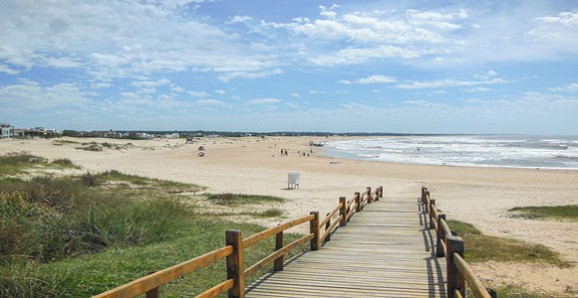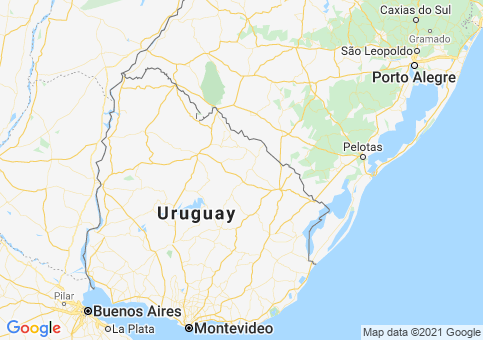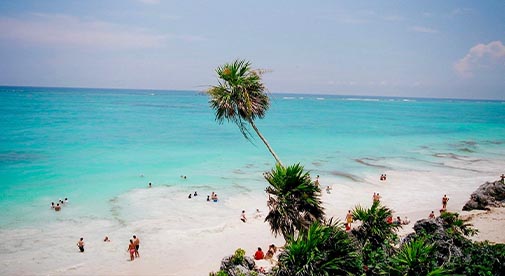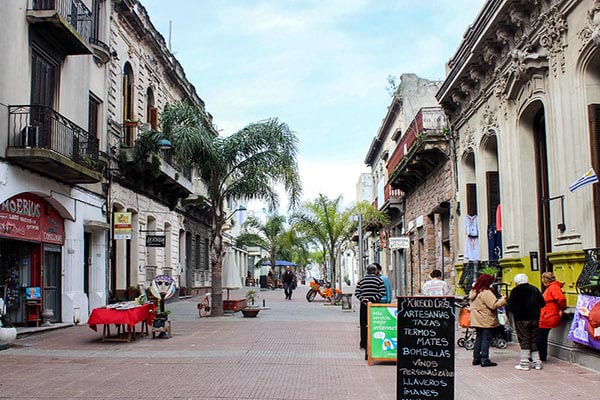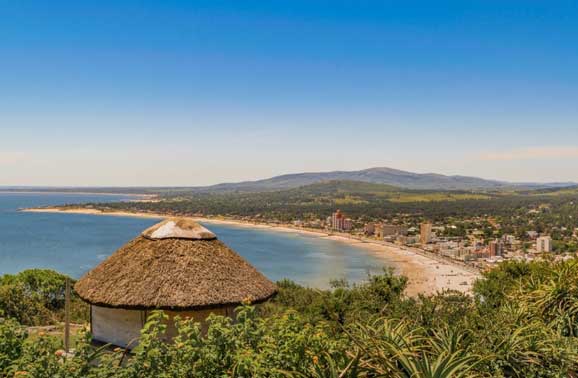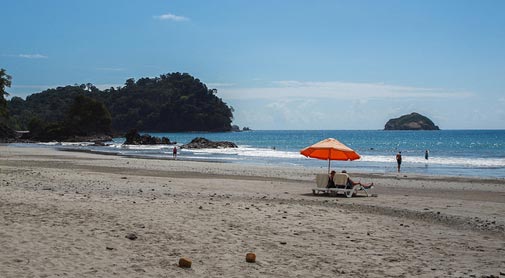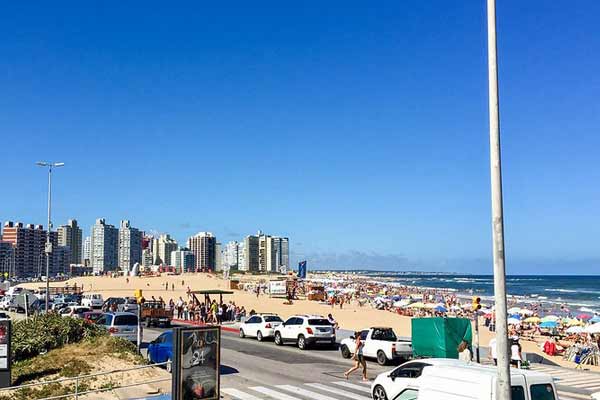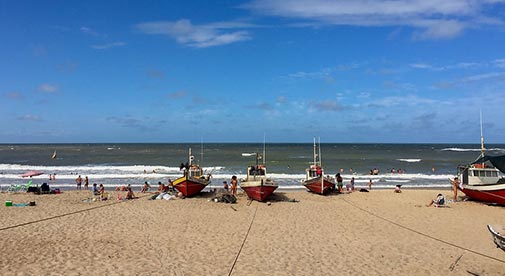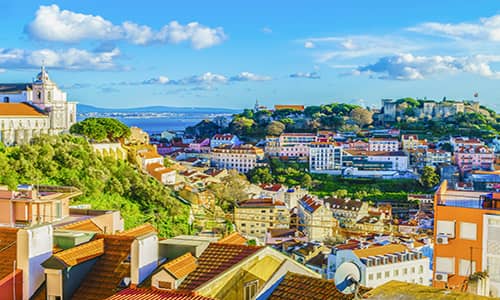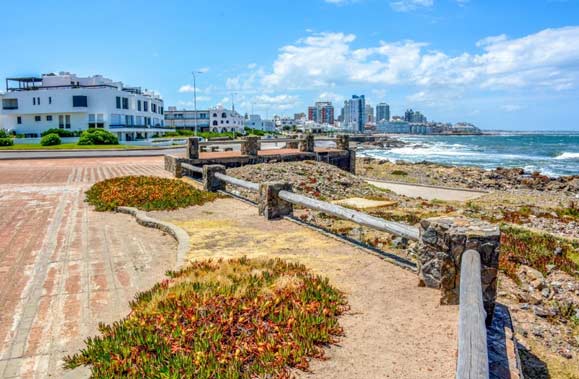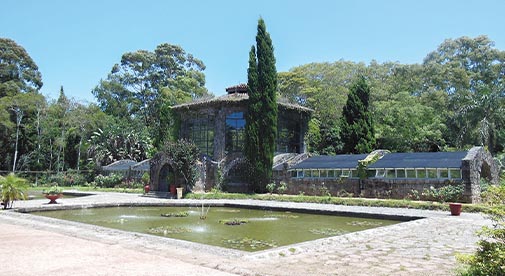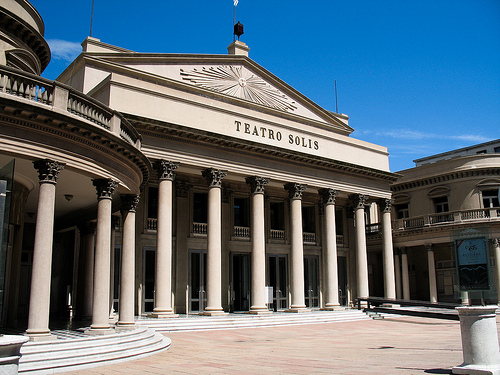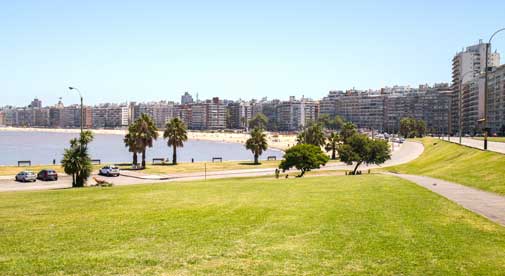Detailed Country Guide to Uruguay - A Latin American Safe Haven
Are you looking for a true safe haven in Latin America?
If so, you need to know about Uruguay—a politically, economically, and socially stable country with a mild climate free of earthquakes and hurricanes.
Uruguay is below the tropical zone and has four seasons. The average summer high temperature is 82 degrees F, cooling down to 63 F at night. The average winter high temperature is 57 degrees F, cooling down to 43 F at night. Because Uruguay is in the Southern Hemisphere with opposite seasons, summer is in December, January, and February.
Besides mild weather, Uruguay has a warm social climate. You’ll find less economic disparity here than anyplace else in Latin America. Uruguayan culture is noted for tolerance and inclusiveness. And expats who are respectful of Uruguay’s culture and make an effort to learn some basic Spanish report feeling comfortable and accepted here.
Uruguay is also among the top countries in the region when it comes to infrastructure. Here, you’ll find the best overall road system, the most reliable electrical grid, and one of the fastest overall internet speeds in Latin America. You’ll also find quality medical care, safe drinking water, and good public transportation.
Even though Uruguay is a small country, it offers a variety of lifestyle options. Choose among places like Montevideo, the capital city with an active cultural scene; Punta del Este, the continent’s most sophisticated beach resort; La Paloma, a small beach town on the Atlantic coast; or a small farm or rural town in Uruguay’s countryside.
But what about Uruguay’s solvency? The country of Uruguay has investment-grade sovereign bonds. The locally-owned banks are well capitalized and safe. In 2009, when most of the world’s economy was suffering from the global recession, Uruguay posted an economic gain. There were no failed banks, and the rate of nonperforming loans throughout the country was just 1%.
Uruguay is a popular place to invest in real estate. That’s because foreigners can buy, own, and sell property with the same rights and protections as a Uruguayan citizen. Uruguay’s government welcomes foreign investment by individuals, the system for registering property ownership is solid, and property rights are enforced.
Uruguay is a nice place to spend time. It’s a small food producing country, which offers a variety of pleasant lifestyle options that is out of the way of world conflict.
Pros and Cons of Living in Uruguay
Written by David Hammond
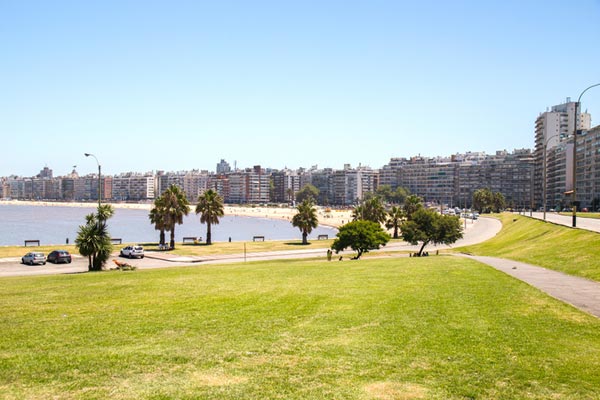
Are you thinking about Uruguay as a place to live?
If so, I can understand why.
Uruguay is a lovely country with vast green pastures dotted with palm trees; long sandy beaches stretched between dramatic rocky points; and architecture that ranges from eclectic masterpieces to sleek glass-clad towers.
The people of Uruguay are laidback (muy tranquilo). It’s a place where friends, family, and neighbors take time for each other—where relationships are more important than schedules.
After reading about Uruguay, and then visiting, I gave living in Uruguay a try. That was 12 years ago. And I’m still here.
While Uruguay is a good fit for me, it’s not right for everyone. We all have different priorities and different needs at various stages of our lives.
So, is Uruguay right for you? To contribute to your research, here are a few of the pros and cons of living in Uruguay.
Pro – A Variety of Lifestyle Settings
Whether you prefer living in a city, a beach resort, or the country, you’ll find attractive options in Uruguay. For city life check out Uruguay’s capital, Montevideo. It’s the city Mercer ranks highest for quality of life in South America. For beach life, consider Punta del Este—South America’s most prestigious beach resort.
If country life is more your style, you may enjoy living in a community of hobby farms (called chacras). You’ll also find small beach towns set in rural coastal areas, such as La Paloma in Uruguay’s Department of Rocha.
Con – Not Much in the Way of Spicy Food
Popular cuisine in Uruguay includes barbecued beef, lamb, and pork; as well as a variety of Italian, Spanish, and French dishes. What you don’t find in Uruguay, is a selection of spicy foods, such as authentically spicy Mexican food, Thai food, and Indian food.
Pro – Few Natural Threats
Uruguay doesn’t get earthquakes. And it’s not in a hurricane path.
On food security, Uruguay is a small country of 3.5 million that produces enough food to feed 28 million.
Con – Uruguay has Winter
If you’re looking for a valley of eternal spring, Uruguay is not your place. Located in the Southern Temperate Zone, Uruguay has four seasons. Average summer temperatures are ideal (with highs in the low 80s F and lows in the mid-60s F).
But, winter temperatures are cooler. Average daytime highs reach the high 50s F and average nighttime lows dip to the mid-40s F. With high humidity and wind, it can feel colder than you might expect. On many winter days, you’ll see people wearing, coats, hats, and gloves.
Pro – Quality Healthcare is Affordable
While you find many types of healthcare plans in Uruguay, the most popular are hospital-based membership plans called mutualistas. A mutualista covers everything from routine checkups to major surgery. The cost is less than $100 per month, plus a small co-payment when you receive services. (Note: Each mutualista sets its own acceptance standards for age and preexisting conditions. After age 65 your options narrow.)
Con – Imported Goods and Energy can be Expensive
In Uruguay, imported goods, such as cars, furniture, electronics, and processed foods cost more than in the U.S. Gasoline and electricity can also be more expensive.
There is no getting around the higher costs of imported manufactured goods. But, you can spend less in Uruguay than you might in the U.S. on food, transportation, and energy. Here’s how:
- Stick to buying fresh local foods.
- Get around using buses and taxis like 80% of Uruguayans do.
- Be careful with energy use in your home. If you use less than 230kWh per month, you may qualify for the utility company’s Basic Plan that costs around $15.
To save money on electronics, such as computers and smartphones, wait to buy them on visits to the U.S.
Pro – Most Forms of Expat Retirement Income Don’t Need to be Reported
While many countries require residents to report worldwide income, Uruguay does not. Instead, Uruguay’s tax system is mostly territorial. So, many types of income from abroad don’t need to be reported in Uruguay. This includes a retirement pension, social security payments, rental income, and capital gains earned outside of Uruguay.
The exception to Uruguay’s territorial taxation is a 12 tax on financial instruments, such as interest and dividends. The tax only applies after you’ve lived in Uruguay longer than five years. And even then, you can deduct any taxes you pay in the jurisdiction where the interest or dividends are earned, so you don’t get double taxed.
Con – Getting a Good-Paying Job can be a Challenge
If you’re considering getting a job in Uruguay, there are a couple of things you should know. First, while job benefits can be generous (such as 20 days per year vacation time with double pay, plus a month’s salary as an annual bonus) the overall pay may be considerably less than what you’d earn for a similar job in the U.S.
Second, for most jobs in Uruguay, you’ll need to speak Spanish. While many employers are pleased to hire native English speakers, they’ll want you to speak Spanish, too.
If you’re a Spanish speaker and want to live and work in Uruguay, a good online resource is El Gallito: http://trabajo.gallito.com.uy/
If you’re Spanish is only so so, and you want a job in Uruguay, you may not be out of luck. I’ve met several expats with limited Spanish who got jobs in I.T. and teaching English.
Another way to earn money if you live in Uruguay (and for many it’s the most practical option) is to work online as a freelancer.
Pro – An Expat-Friendly Real Estate Market
If you want to buy a home or other property in Uruguay, it’s no problem. You as a foreign individual can buy, hold, and sell property in your own name with all the same rights as a Uruguayan citizen. This includes farmland and property near a coast.
Con – True Beachfront Property is Hard to Come by
If you want to buy a beachfront home with nothing but your own deck between the door and the sand, you won’t find a lot to choose from in Uruguay. In most places, a coastal road and sidewalk run between the beach and the first row of housing. While you’ll find a few exceptions, most “front line” properties are across the street from the beach, not on the beach.

